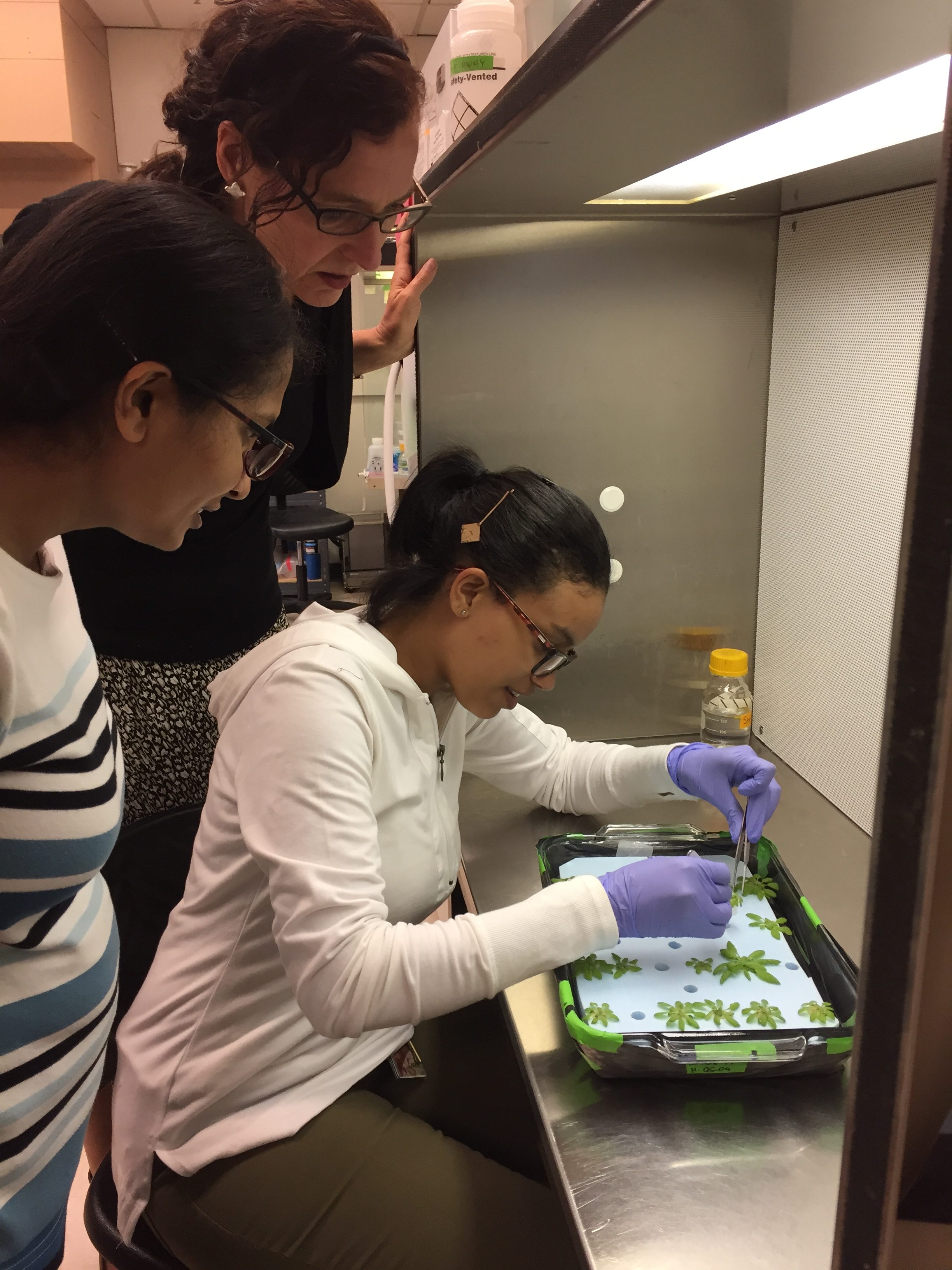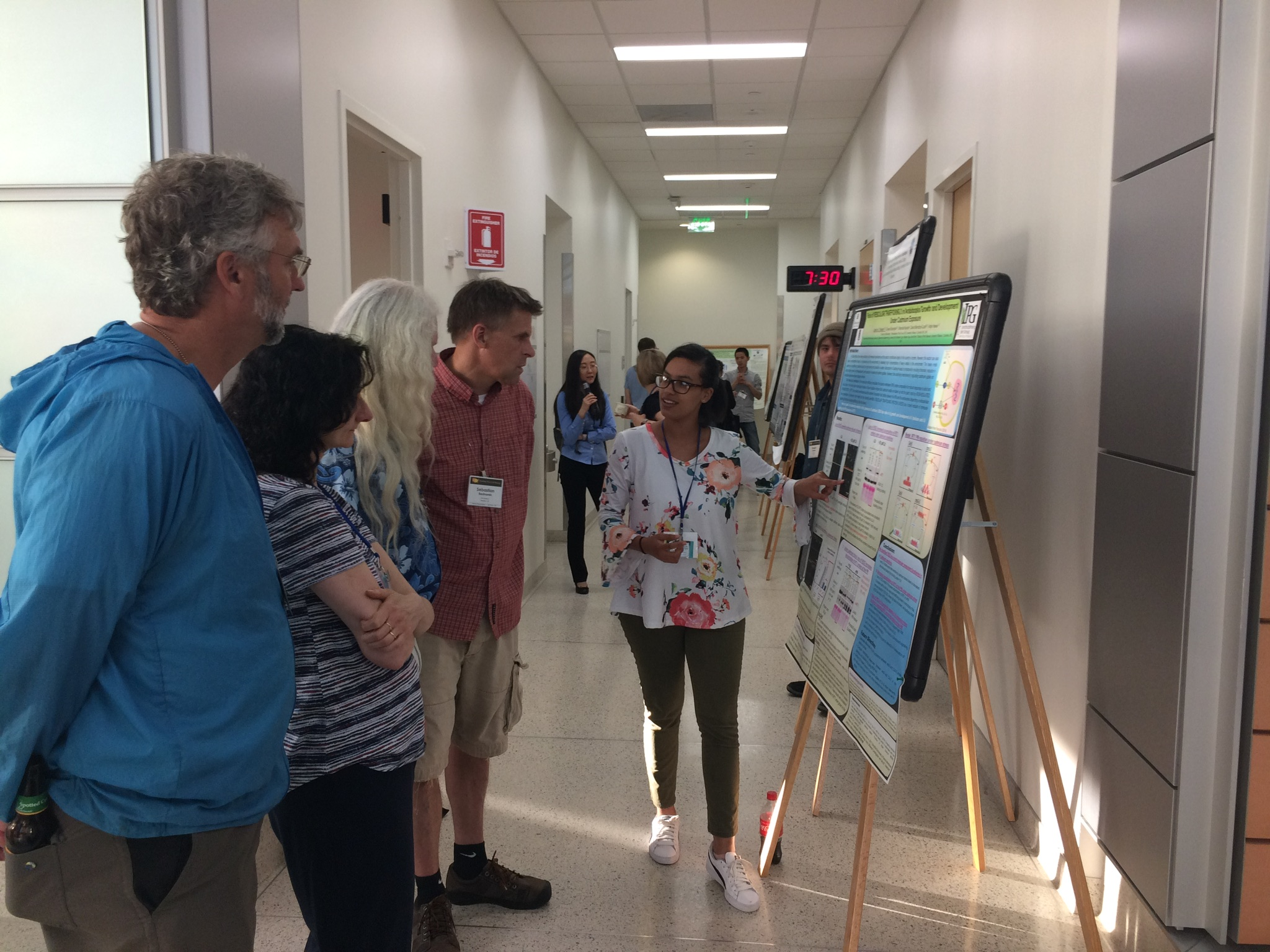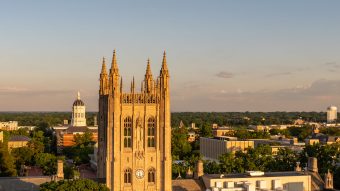Lee Ann Niekerk never experienced snow growing up in Cape Town, South Africa. But that recently changed this past winter when she came to Columbia as part of the University of Missouri South African Education Program. The University of Missouri’s partnership with the University of the Western Cape, which began in 1986, was the first academic cooperation agreement between an American university and a non-white South African university. More than 600 participants from the two universities have taken part in exchange visits. The two schools celebrated their continued partnership with a 30-year anniversary symposium in 2016.

At Mizzou, Niekerk has been conducting research with Antje Heese, an associate professor of biochemistry, and David Mendoza-Cózatl, an associate professor of plant sciences. Niekerk also works with Marshall Keyster, a senior lecturer in the department of biotechnology at the University of the Western Cape. The cross-continental collaboration between Heese, Mendoza and Keyster emerged from a symposium at the University of the Western Cape in June 2015. Heese and Mendoza are faculty members in the College of Agriculture, Food and Natural Resources (CAFNR) and members of the Interdisciplinary Plant Group (IPG) at the University of Missouri.
“Working with these professors has given me insights on everything from writing abstracts to creating poster presentations,” Niekerk said. “I have learned a lot from them in terms of backing up my research with evidence and the importance of controls when conducting experiments.”
Niekerk has been researching the effects of cadmium in plants, which has close ties to her home country. The enormous South African mining industry has impacted the environment due to the release of toxins that damage soil. Cadmium causes leaves to yellow and it can disrupt photosynthesis, which is critical for the growth of plants. As part of her research, Niekerk analyzed the molecular makeup of Arabidopsis thaliana, a now-popular model plant due to groundbreaking work by the late George Rédei, a Hungarian plant biologist who came to teach at Mizzou in 1957 and studied the plant for decades.
The eventual goal of the research is to help increase food security in areas of the world with crops that are exposed to cadmium so that fewer people in those areas will be at risk for starvation. The potential public health benefits of Niekerk’s research have drawn grant funding from the Center of Excellence for Food Security, the National Research Foundation and the National Science Foundation, which invited Niekerk to present her findings at the Plant Cell Dynamics international conference in Madison, Wisconsin, this summer. In addition, Niekerk has received funds from the Interdisciplinary Plant Group and the University of Missouri-South African Education Program to support her work at Mizzou.

“The MU community has been very supportive by offering its students personal and professional development opportunities,” Heese said. “Now that Lee Ann is returning to South Africa to pursue her doctoral degree, I am confident that she is equipped with the knowledge to be a leader and train her peers.”
When the University of Missouri first partnered with the University of the Western Cape, the historic initiative was intended to aid South Africans who had been disadvantaged by apartheid, a system of racial segregation and discrimination that the South African government implemented to limit where non-whites could live, work or go to school. The University of the Western Cape was created in 1959 for students of mixed race to receive an education that helped them fight the inequality.
Shortly before the University of Missouri South African Education Program was established, a group of Mizzou students that called themselves Missourians Against Apartheid protested against $100 million dollars the UM System had invested in businesses with assets in South Africa. Gradually, Mizzou, the United States and countries around the world put economic pressure on the apartheid regime by divesting from businesses that had assets in South Africa. The economic pressure contributed to the official collapse of apartheid in 1994 when Nelson Mandela was inaugurated as the first black president in South African history.



